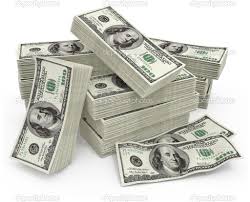TOKYO (APP) – The dollar broadly rose Monday ahead of a key US central bank policy meeting, while China’s yuan hit fresh multi-year lows as policy-makers signalled a move away from its peg against the greenback.
Markets are focused on the Federal Reserve, which is expected to give the go-ahead to a small increase in borrowing costs for the first time in nearly a decade — a plus for the dollar.
The Fed’s two-day meeting, which starts Tuesday, comes as plunging oil prices and worries about the global economy have recently sent investors flocking to safe-haven units including the yen and euro.
“While the US dollar has been trending higher over the past year in anticipation of the first likely rate hike in a decade, the tone of the (Fed) statement will determine how the US dollar might fare” going forward, Bank of New Zealand currency strategist Jason Wong said in a commentary.
“Fed tightening will be occurring at a time when other major central banks are on hold or still easing, which should continue to provide support to the US dollar,” he added. Higher interest rates attract investors seeking better returns to dollar-denominated assets.
On Monday, the greenback rose to 121.10 yen from 120.86 yen Friday in New York, but it was still well down from 123 yen at the start of last week.
Also Monday, a closely watched Bank of Japan survey on business confidence showed major manufacturers were cautious last quarter.
However, the slightly better-than-expected result dampened hopes that the Bank of Japan would expand its huge stimulus programme this year, further supporting the yen.
The euro weakened to $1.0958 and 132.70 yen from $1.0996 and 132.89 yen in US trade.
China’s yuan, or renminbi, slumped as Beijing struggles with an outflow of capital and a growth slowdown in the world’s number two economy.
The dollar bought 6.4588 yuan. It hit a four-year low of 6.4358 in US trade on Friday after Beijing signalled it would begin measuring the yuan against a multi-currency basket instead of just the dollar.
The move — aimed at better reflecting market realities — spurred speculation the Chinese unit would weaken further.
“The market took the announcement as the People’s Bank of China allowing for more weakness in the renminbi,” Andy Ji, a Singapore-based strategist at Commonwealth Bank of Australia, told Bloomberg News.
China shocked world markets over the summer with a series of currency devaluations that set off a plunge in its domestic stock market, and reignited worries about the health of the world’s number two economy.
In other trading Monday, the dollar rose against some emerging market currencies, while weak oil prices hit Malaysia’s ringgit.
The ringgit fell 0.52 percent, while the South Korean won dropped 0.45 percent and Taiwan’s dollar fell 0.22 percent.














